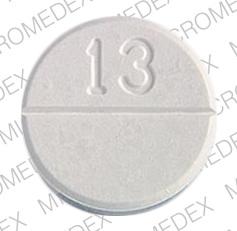Aluminum hydroxide Interactions
There are 241 drugs known to interact with aluminum hydroxide, along with 1 disease interaction, and 1 alcohol/food interaction. Of the total drug interactions, 19 are major, 127 are moderate, and 95 are minor.
- View all 241 medications that may interact with aluminum hydroxide
- View aluminum hydroxide alcohol/food interactions (1)
- View aluminum hydroxide disease interactions (1)
Most frequently checked interactions
View interaction reports for aluminum hydroxide and the medicines listed below.
- Acetylsalicylic Acid (aspirin)
- Activated Charcoal (charcoal)
- Adrenalin (epinephrine)
- Augmentin (amoxicillin / clavulanate)
- Azithromycin Dose Pack (azithromycin)
- B Complex 100 (multivitamin)
- Benadryl (diphenhydramine)
- Cipro (ciprofloxacin)
- Colace (docusate)
- Ginkgo Biloba (ginkgo)
- Glucosamine & Chondroitin with MSM (chondroitin / glucosamine / methylsulfonylmethane)
- Iron Sulfate (ferrous sulfate)
- Lasix (furosemide)
- Metoprolol Tartrate (metoprolol)
- MiraLAX (polyethylene glycol 3350)
- Nexium (esomeprazole)
- NPH Insulin (insulin isophane)
- Paracetamol (acetaminophen)
- Plavix (clopidogrel)
- Symbicort (budesonide / formoterol)
- Tylenol (acetaminophen)
- Valproate Sodium (valproic acid)
- Vitamin B Complex 100 (multivitamin)
- Vitamin B1 (thiamine)
- Vitamin B12 (cyanocobalamin)
- Vitamin B6 (pyridoxine)
- Vitamin C (ascorbic acid)
- Vitamin D3 (cholecalciferol)
- Vitamin K (phytonadione)
- Zofran (ondansetron)
Aluminum hydroxide alcohol/food interactions
There is 1 alcohol/food interaction with aluminum hydroxide.
Aluminum hydroxide disease interactions
There is 1 disease interaction with aluminum hydroxide which include:
More about aluminum hydroxide
- aluminum hydroxide consumer information
- Compare alternatives
- Pricing & coupons
- Side effects
- Dosage information
- During pregnancy
- Drug class: antacids
- En español
Related treatment guides
Drug Interaction Classification
| Highly clinically significant. Avoid combinations; the risk of the interaction outweighs the benefit. | |
| Moderately clinically significant. Usually avoid combinations; use it only under special circumstances. | |
| Minimally clinically significant. Minimize risk; assess risk and consider an alternative drug, take steps to circumvent the interaction risk and/or institute a monitoring plan. | |
| No interaction information available. |
See also:
Further information
Always consult your healthcare provider to ensure the information displayed on this page applies to your personal circumstances.


